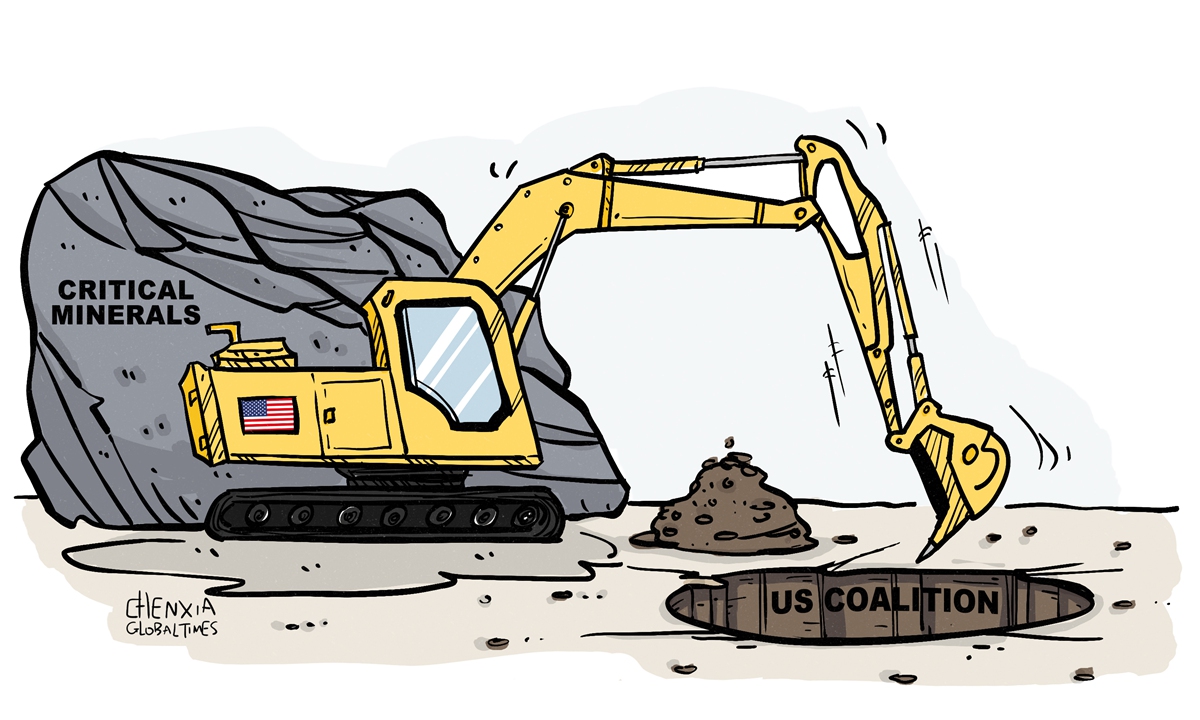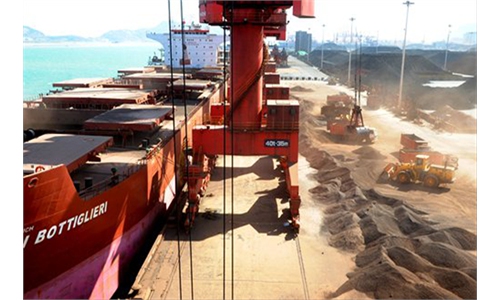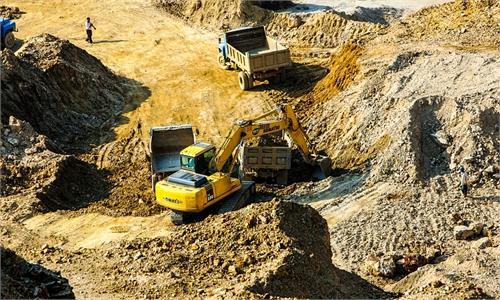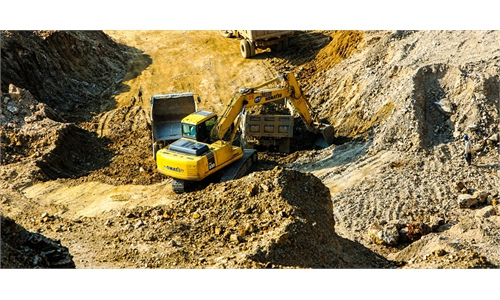
Illustration: Chen Xia/Global Times
America's only rare-earths producer has agreed a deal to ship output from its new processing plant to Japan, Bloomberg reported on Wednesday. The move comes amid a push by Washington to upgrade relations with allies and reduce China's role in their critical minerals supply chains.In a separate report, Bloomberg said earlier this month that the US is looking to create a "critical minerals buyers club" with allies like Japan, the EU and UK. "The move would ensure the bloc is not reliant on China for critical minerals," people familiar with the matter were quoted as saying.
Over the past few years, amid rising anti-China sentiment, the US has stepped up its pace in forming cliques and "small circles" on the international stage in an attempt to create confrontation, incite division, and try to strengthen the US position in global critical minerals supply chains for its selfish interests.
A wide range of critical minerals - including rare earth elements, lithium, and cobalt - have assumed huge strategic importance because of their role in defense electronics, electric-vehicle technology and other uses. As a result, the international competition for critical minerals has become fierce. It is normal that everyone wants to win, but a gross act of malicious competition should be strictly prohibited.
In order to compete for critical minerals, Washington has let political conspiracies control its economic agenda by forming cliques to pursue selfish interests. In December 2022, the US and some other Western countries announced an alliance to produce and buy critical minerals from "countries with stronger environmental and labor standards," Reuters reported. The goal of a series of US moves to form cliques is to ensure that critical minerals are produced, processed, and recycled in a manner that serves the US interests.
However, critical minerals should not be politicized, or weaponized, which will disrupt the stability of the global supply chain and affect the progress of science and technology and the development of emerging industries. The risks of US efforts to form small cliques should be fully evaluated.
It has to be noted that critical minerals, rare earth elements included, are deeply politicized by the US and its gross act will undoubtedly destabilize global industrial and supply chains and disrupt international trade order. However, its actions will be doomed to fail due to its excessive arrogance. Although the US and some of its allies are rich in natural resources, it is still a pipe dream for them to control global critical minerals supply chains by forming cliques among Western countries.
As demand for critical minerals increases, developing countries have gained an important presence. For instance, Latin American countries host many of the resources needed for the energy transition, including lithium and copper. In nickel minerals, Indonesia reportedly ranks third in the global level. Africa is also resource rich.
China is the world's leading producer and consumer of many critical minerals that are essential to those used in the manufacturing of elements ranging from electric vehicle batteries to solar panel. Politics-oriented economic cooperation among the US and its Western allies can hardly exclude China from global critical minerals supply chains. While the US is keen on forming small circles, building walls and establishing geopolitical camps, China is actively advocating the practice of openness and becomes an important player in global critical minerals supply chains.
As the world, which is facing rising geopolitical tensions and a worsening economic downturn, transitions to a clean energy economy, developing economies should promote all-around cooperation and coordination to deal with increasing demand for critical minerals. All countries should play a constructive role in ensuring the security and stability of global critical minerals supply chains, jointly promote the normal development of mutually beneficial cooperation. At the very least, critical minerals should not be politicized for ulterior motives.
The author is a reporter with the Global Times. bizopinion@globaltimes.com.cn



